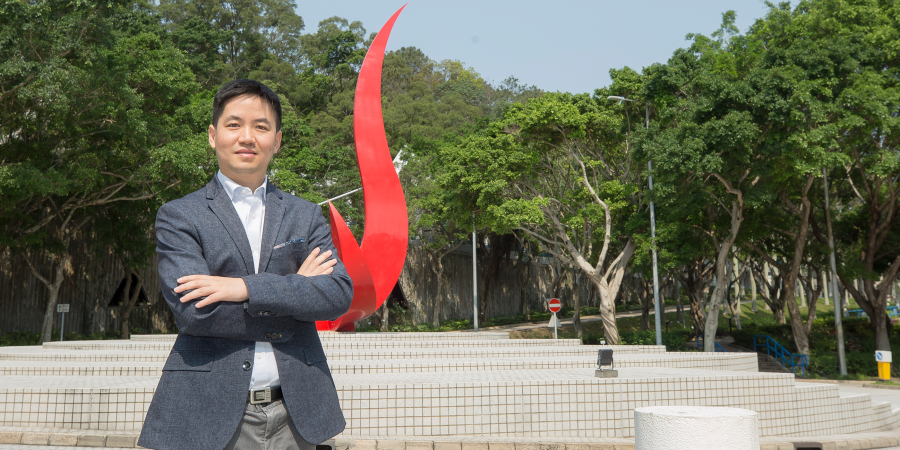Prof. FAN Zhiyong’s Research on Bio-Inspired Electronic Nose Published in Nature Electronics
Chair Professor FAN Zhiyong’s research work on bio-inspired electronic nose was recently published in Nature Electronics, a top-tier international journal in the field, in the paper titled “Biomimetic Olfactory Chips Based on Large-Scale Monolithically Integrated Nanotube Sensor Arrays”.
One major breakthrough in the work is that, for the first time ever, the research team demonstrated an integration of up to 10,000 gas sensors on one small nanostructured chip (a non-silicon based material), enabling complex gas/odor discrimination of the chip with the use of AI algorithms. This configuration is similar to how olfaction works for human and other animals. The team has also for the first time deployed their biomimetic olfactory chip on a robotic dog, showing their vision on the chip’s broad applications and impact.
The two first authors (with equal contribution) of the paper are Dr. WANG Chen, former postdoctoral fellow, and Dr. CHEN Zhesi, 2023 graduate of PhD in Electronic and Computer Engineering.
A patent has been filed for this research work. The technology will also be licensed for commercialization.

